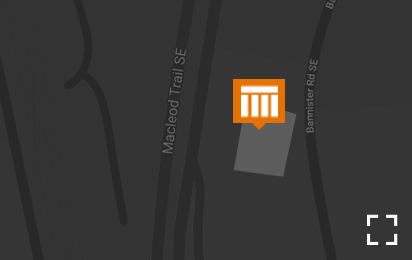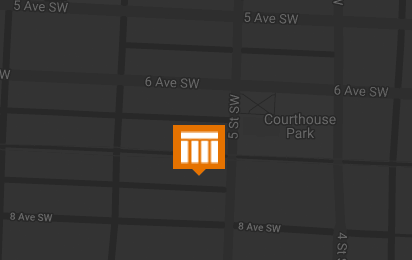Publication
Short Term Rentals and Insurance Deductible Chargebacks
Two court decisions may have big impacts on how the condominium industry manages their projects.
One case deals with the frequently-asked question: What can a condo board do about short-term rentals like “AirBnbs”.
The other case deals with the circumstances that would allow a condo corporation to charge an owner for an insurance deductible when the loss causing the claim was the owner’s fault.
Short-term rental AirBnb case
Condominium Corporation No. 0425177 v. Kuzio 2019, ABQB 814
In this case the condo corporation sued the owners who were offering their units for sale on AirBnb on a short-term basis.
The Corporation took the position that the short-term rental violated the bylaws as it was for “commercial use”.
The owners defended by stating that the bylaw could not operate in this manner as Section 32(5) of the Condominium Property Act states that a “Bylaw cannot operate to prevent an owner from leasing a unit”.
Its been debated in the condo law community here in Alberta that a Corporation may be able to restrict short-term rentals by relying on a restriction in the bylaws against commercial use, but this hasn’t been ruled on by the Courts until now. No other province has a similar provision to Alberta’s that restricts leasing the way the Alberta Condominium Property Act does.
In this case, the bylaw stated that no unit can be used for commercial or professional purpose involving the attendance of the public at such unit… The “attendance of the public” wording turned out to be important.
As part of its lawsuit, the Corporation sought an interim Order for the unit owners to stop renting on AirBnb. As part of this Order, the Corporation promised to pay the damages (i.e. lost rent) to the unit owners if the Court ultimately ruled that they couldn’t prevent AirBnbs. This decision determined whether the Corporation could stop the unit owners from renting their places on AirBnb until the final decision by the Court.
The Court granted the interim Order and found that there was a serious issue. The Court quoted directly from AirBnb terms of service which refers to the commercial nature of the endeavour, but also uses the term "license" as opposed to “lease”. The Court found that there is a serious question as to whether a short-term rental is a lease or a contractual license. The Court's analysis also suggests that whether it is a license, or a lease may depend on the terms of service with the particular service provider. The Court also found that short-term rentals involve the attendance of the public at the unit in a way that long-term rentals don’t.
The Court found that there is a serious question to be determined with respect to whether short-term rentals under AirBnb constitute a commercial use. The matter is presently set to go ahead in the coming months, but it remains to be seen whether a final decision will be made. Stay tuned.
Deductible chargeback Case
Condominium Plan No. 7721985 v. Breakwell, 119 ABQB 674
In Alberta, bylaws that specify that an insurance deductible can be charged back to an owner due to the owner’s "act or omission" requires the owner to be found negligent.
This recent decision sheds doubt on that proposition. In this case the owner’s furnace shut down causing a pipe to freeze and burst, which flooded the owner’s unit and some adjoining units. To complicate matters, the shutoff valve was located behind cabinets which were installed before the owner purchased the unit. Because the valve was behind cabinets, the damage was much worse than if they were able to readily locate and shutoff the valve.
The bylaws in this condo had the standard language:
- a deductible can be charged back for an act or omission of an owner
- the owner shall take appropriate steps to ensure that all plumbing, heating, ventilation, and cooling systems are in working order and that they are repaired, maintained or replaced when necessary
- the Corporation isn’t liable for failure of these systems
- the Corporation is not liable for losses caused by overflow or leakage of water
- the Corporation can recover money it has to spend due to an owner’s act or omission that violates the bylaws
The Court cited cases from other provinces where the words “act or omission" were used in the bylaws and were found to not mean negligence. The Court also applied principles of interpretation, stating that the word “negligent" was used in the bylaws but not in the section about deductible chargebacks. And when certain words are used in one context, it can be assumed that different words used in another context are not meant to mean that same thing. Put another way, it was open to whoever put the bylaws together to use the word “negligent” in the section that dealt with insurance deductibles, and they did not. They instead used the words “act or omission”, so the Court may assume that “negligence” wasn’t intended.
The Court decided that the deductible could be charged back and stated that the act or omission was the unit owner's failure to keep the furnace in a state of good repair, which they were required to do under the bylaws. The Court relied on a bylaw that stated the unit has to meet the building code, and that concealing the shutoff valve behind cabinets was not to code. The fact that the renovation which put the shutoff valve behind the cabinets was done by the previous owner was not enough to sway the Court. In the end, the Court allowed the chargeback of the deductible.
The take-away is that it’s not always the case that an act or omission bylaw regarding insurance deductibles requires negligence in order to be charged back. This case shows that whether a deductible can be charged back depends on the combination of factors: the particular facts that give rise to the chargeback and the interplay between different sections of the bylaws. This case also reinforces the view that the question of whether a deductible can be charged back is a very technical and fact-intensive process. It is advisable to gather all the facts first and then have a lawyer review to determine what your legal position is.
If you have questions about your condominium property, we can help. Call one of our lawyers in our Condominium Law group—we are here to assist you.

